Garden edging ideas – for neat, tidy and decorative borders
Clever edging means you can change the look of your garden without a major makeover
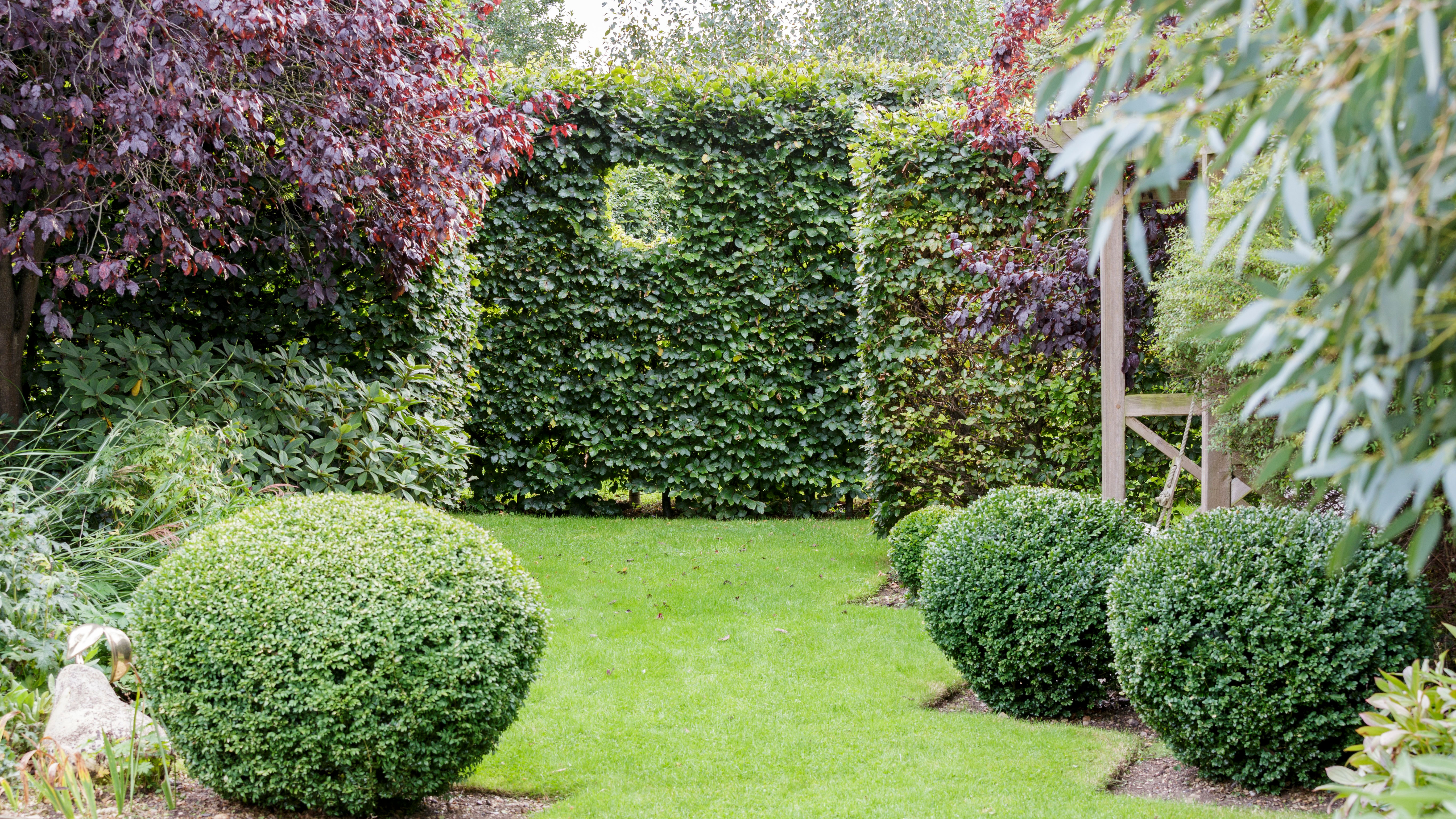

Looking for garden edging ideas? When it comes to keeping our gardens neat and tidy, getting your garden borders right is key.
Garden edging is often used to define a space – so as long as it separates two distinct areas – it can just about be anything you like. Popular choices include stone, brick and concrete, while more creative options range from logs and shells to recycled roof tiles and coated-wire.
Not only do they add charm and character to your garden landscaping, they're extremely practical too, separating weeds from flower beds and mulch from lawns. As well as providing a clean line for extra-efficient mowing and trimming.
Take a look at some of our favorite garden edging ideas to inspire your next gardening project.
1. What is garden edging?
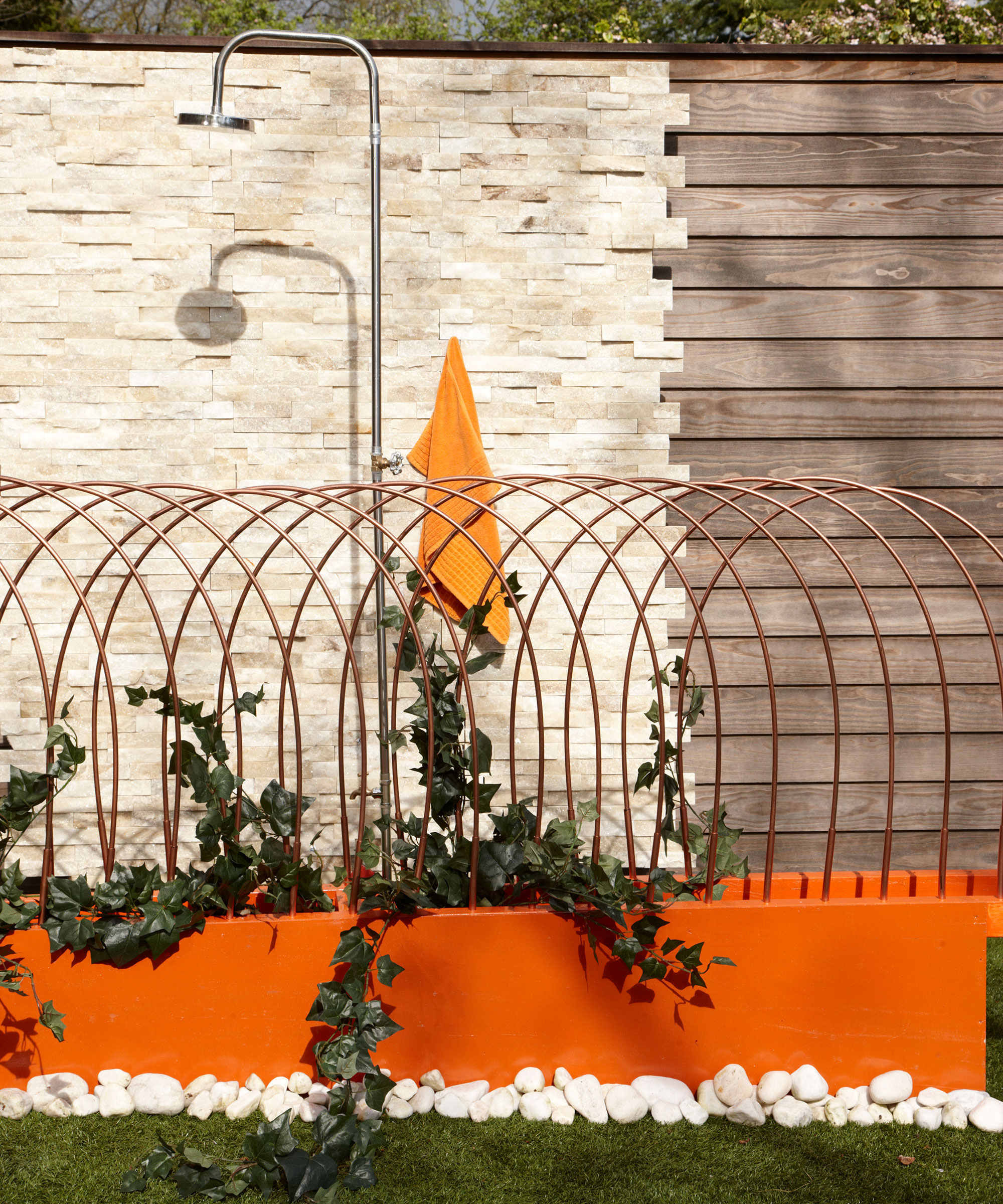
A crisp, nicely clipped edge between lawn and border makes a garden look loved. Tidy edges prevent grass growth spreading into the border and can me using edging shears a whole lot easier. Unfortunately, period of rainfall and drought can take their toll, leaving edges damaged or crumbling away under the weight or mowers and feet. Tempting thought it is to repeatedly cut a fresh edge, this only reduces the size of the lawn.
So what’s the solution? Edging is available in various styles to provide the support needed. Many are made of timber but there are also stone, plastic, bamboo and metal garden edging systems. Some are designed to be hidden from view, allowing the grass to spread along the top and making it simple to shear off any overhanging growth. Others may be decorative, even to the extent of forming small ‘fences’ around the border, as seen above.
Tip: when choosing a supportive edging system, remember to look for a flexible material if it needs to bend around curves.
- See: Small garden ideas – clever designs for maximizing a compact gardening space
2. Create a border by lining a garden path

A neat garden path is a must – especially if you are after a perfectly manicured aesthetic. Here, a combination of gravel and box hedges provide structure throughout the year – and prevent soil from seeping out onto the walkway. Keep edging neatly clipped to ensure the lines stay sharp.
- See: Garden path ideas – create a beautiful walkway with the right materials, edging and plants
3. Edge the vegetable plot
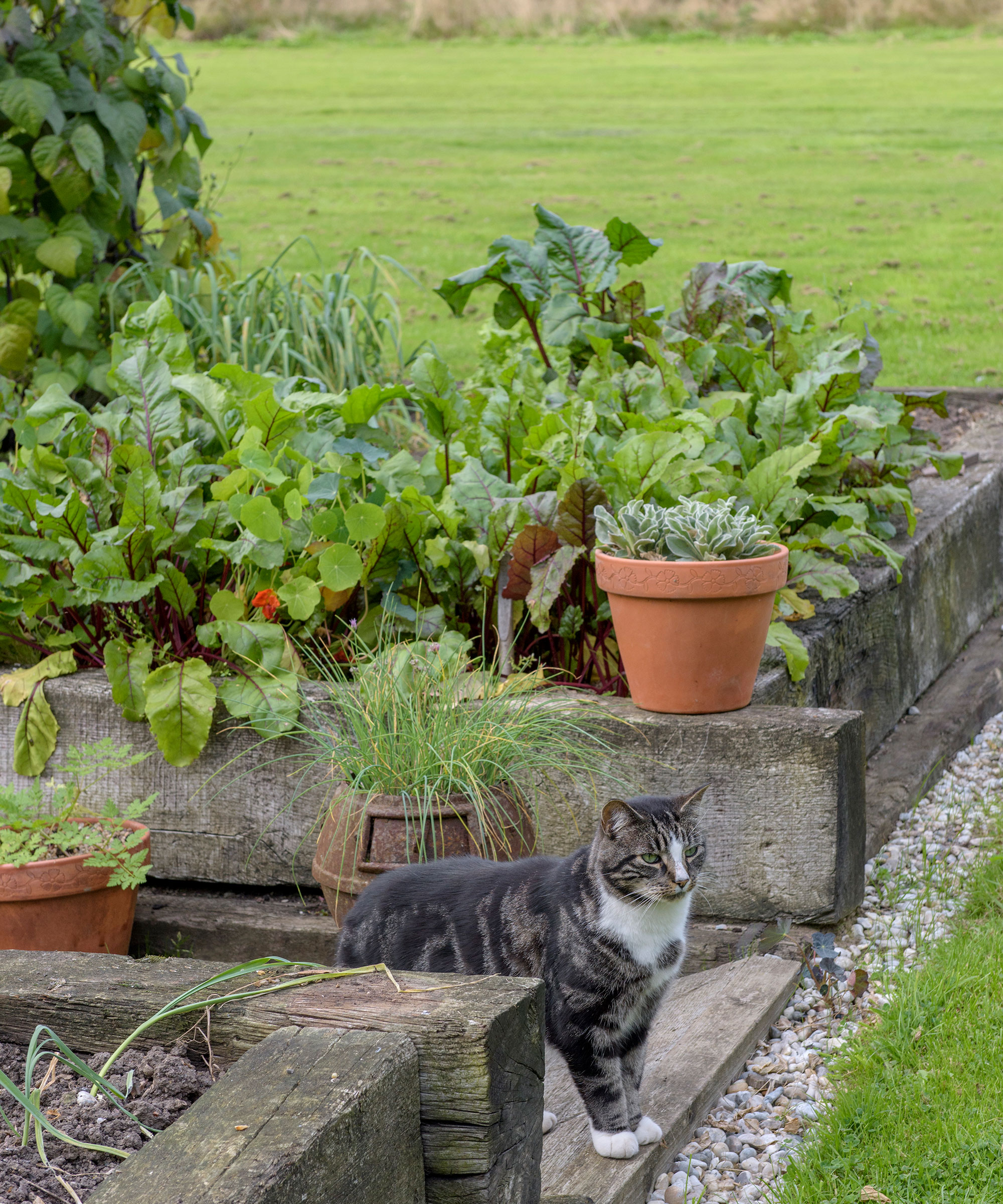
Make your vegetable garden look less allotment and more French potager. In this garden, reclaimed railway sleepers make excellent borders. Alternatively, use wood pallets if you can't get hold of sleepers. Add a box ball to the corners for even more structure. Monitor edging closely for deep-rooted perennial weeds.
See: Flower bed ideas – 10 beautiful ways to create floral displays in your garden
4. Define beds and borders to perfection
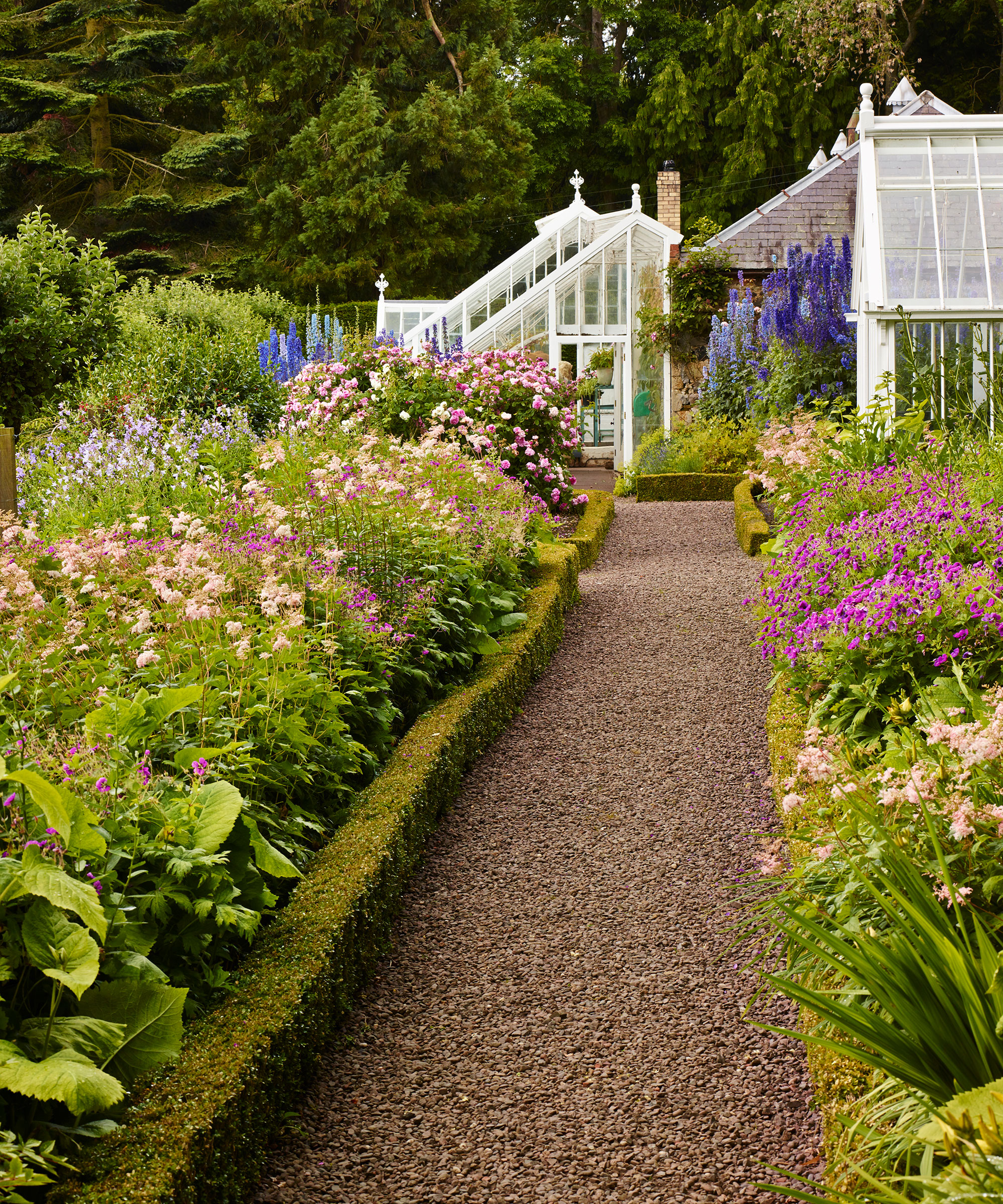
Edging doesn't have to consist of purely hard materials. Use box hedges to define and contain an abundant flower display. Razor-sharp low edging looks especially good when teamed with unrestrained cottage garden perennials and colorful summer bedding.
- See: Garden landscaping ideas – add structure and character to your outside space
5. Create designer curves
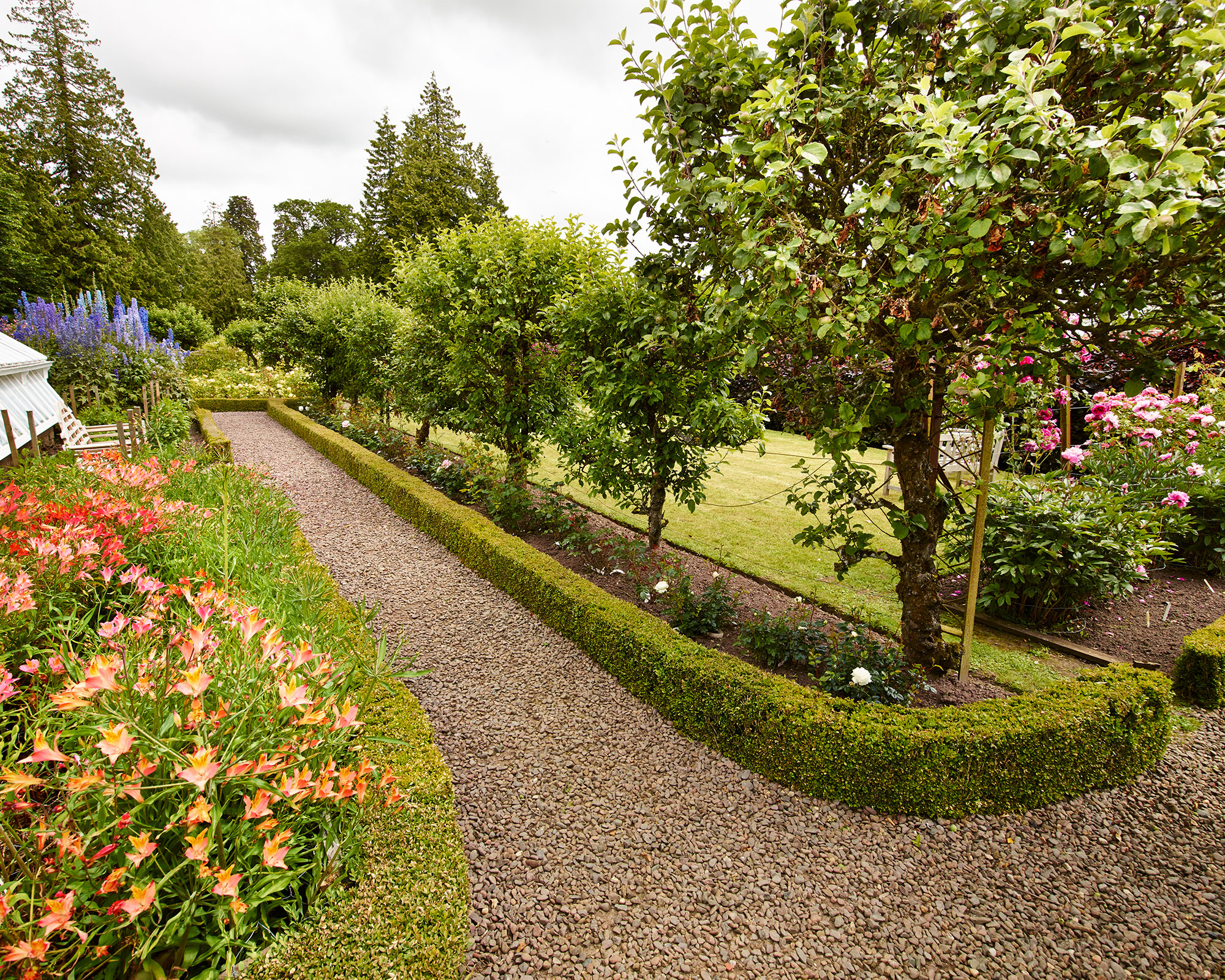
Garden borders don’t have to stick to the straight and narrow: add a designer touch by creating eye-catching curves. Mark out the line of the hedge before planting and clip carefully for the desired look.
- See: Raised bed garden ideas – build raised planters now for productive, low- maintenance gardening
6. Lay down imaginative edging

The border acts as a frame to any material and is essential where gravel meets a lawn.
Linear paths benefit from the definition of a hard edging in engineering or stock bricks, wattle fencing, tiles, pavers or granite setts. Informal, winding gravel or bark paths can be left to naturally merge into planting or edged with birch poles or other branches laid either side.
7. Make a statement with edging stones
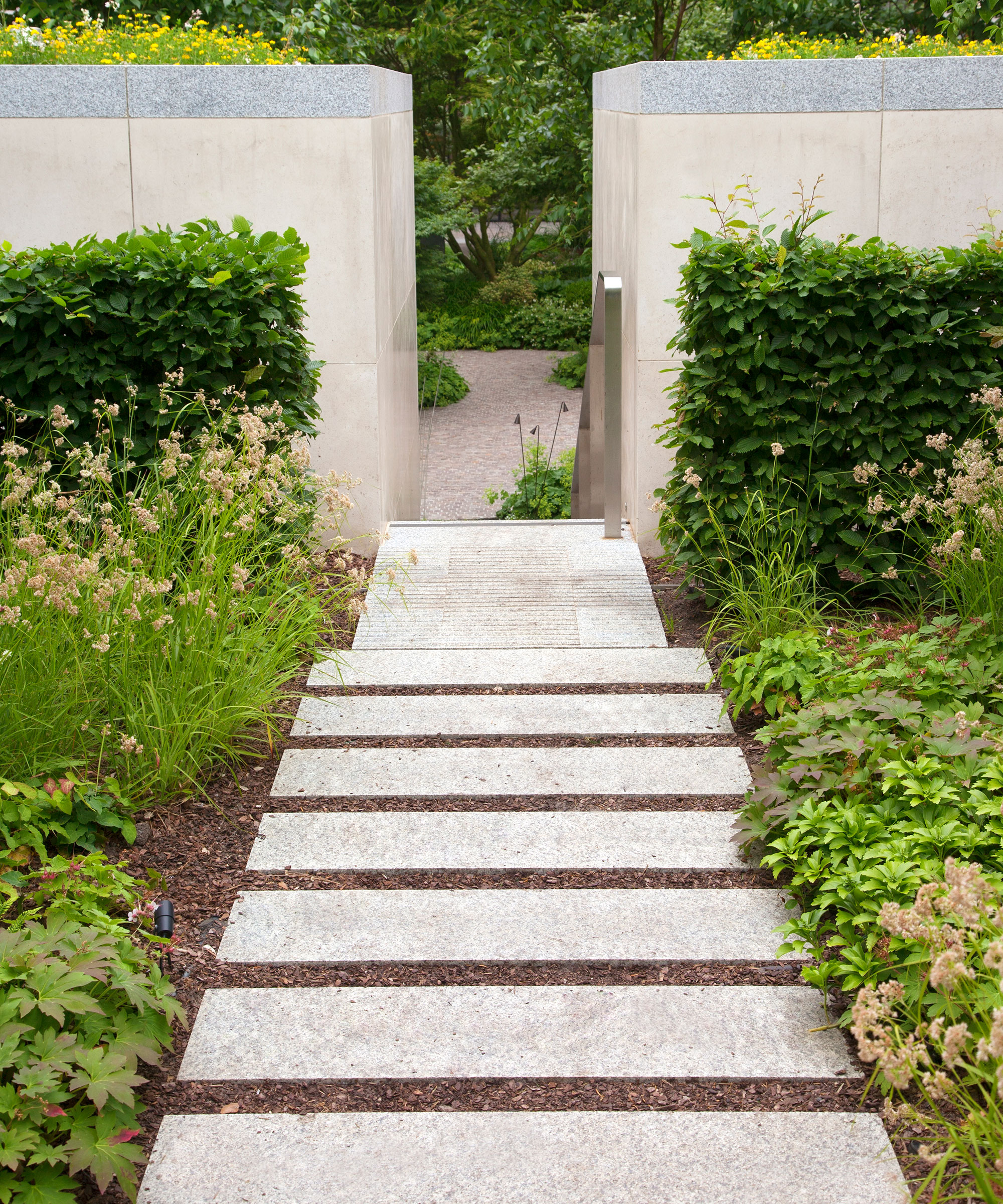
Large stones or rocks strategically placed offer the same effect but, do not place near grass as cutting would be tricky. If edging with timber, treat with a plant safe preservative and fix with wooden pegs inserted every 1.2m (4ft).
8. Plant a low-evergreen hedge
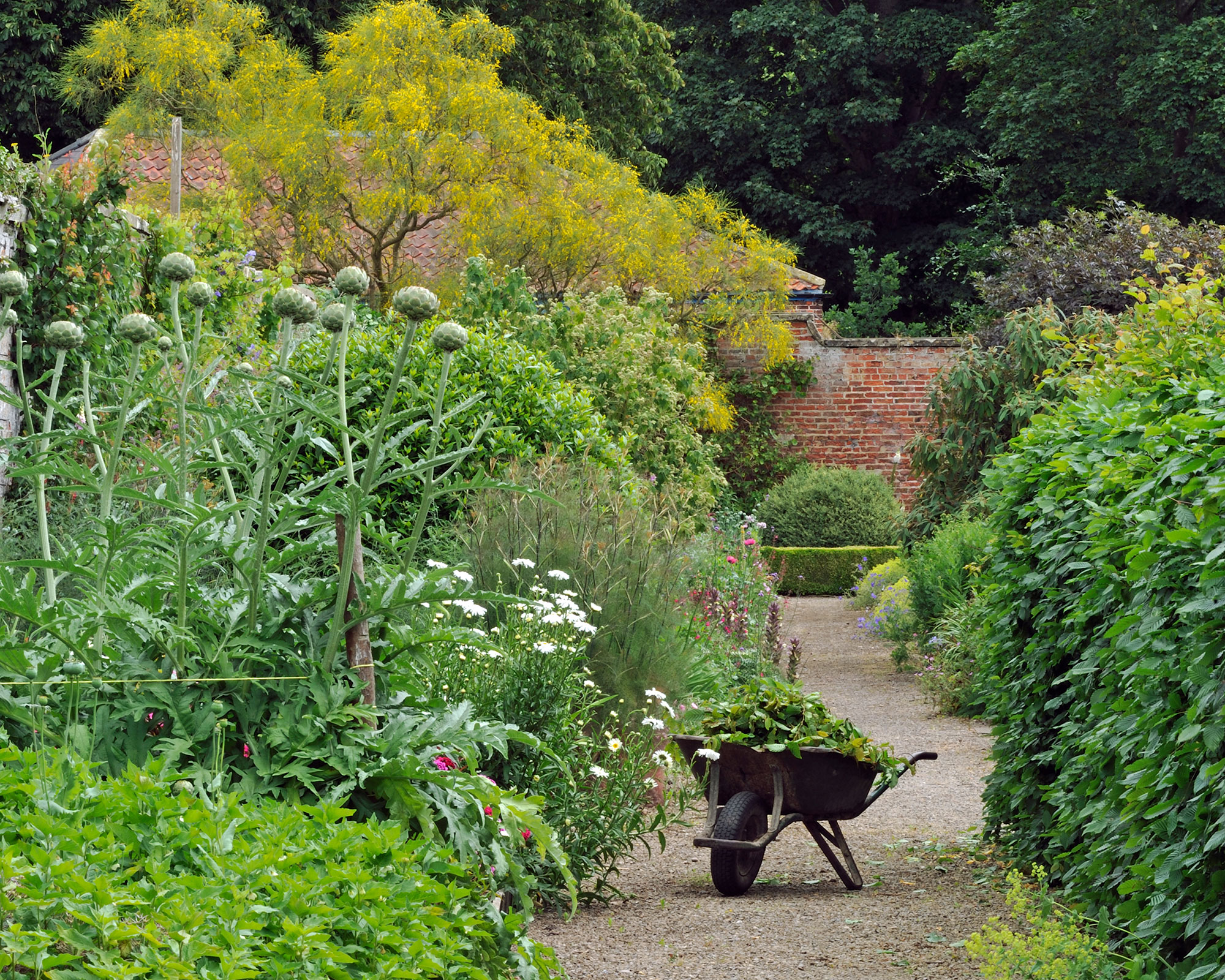
An informal planting style, such as in cottage borders, is random and undisciplined but, when edged with low, evergreen box hedge, these beds fit seamlessly into a formal design. Dwarf box ‘Suffruticosa’ can be maintained happily at 10-15cm tall, whole Buxus sempervirens doesn’t take too kindly to being kept too short. This is also a great plant for sculpting into topiary features, such as simple balls.
‘It is worth keeping in mind that soft-stemmed herbaceous perennials (which usually die each winter) tend to be faster-growing that shrubs,’ says Helen Derrin, designer at Crocus. ‘However shrubs – particularly evergreens – do provide interest throughout the year, so their value should not be ruled out.’
9. Edge with plants
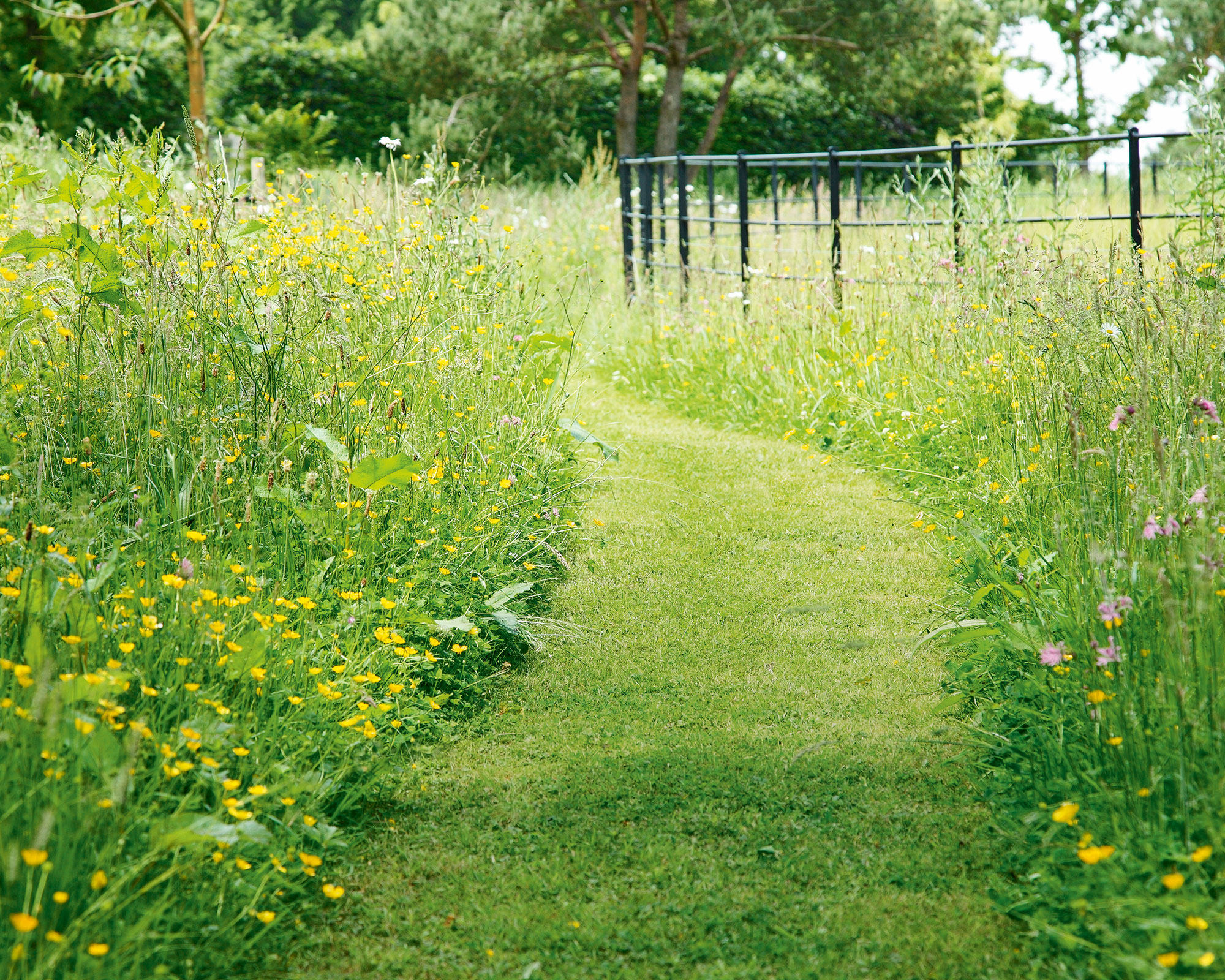
You can tidy – and even transform – your garden using plants to outline your flowerbeds. But where to begin? Low-growing plants play an essential role, as they can be used to define a path and bed boundaries, soften harsh edges and counter big, bold plants for visual interest. Edging plants and grasses are also among the most hard-working ones in the garden, providing color and interest year round – and they also have to be pretty robust when it comes to pests and diseases.
10. Edge a garden with bricks
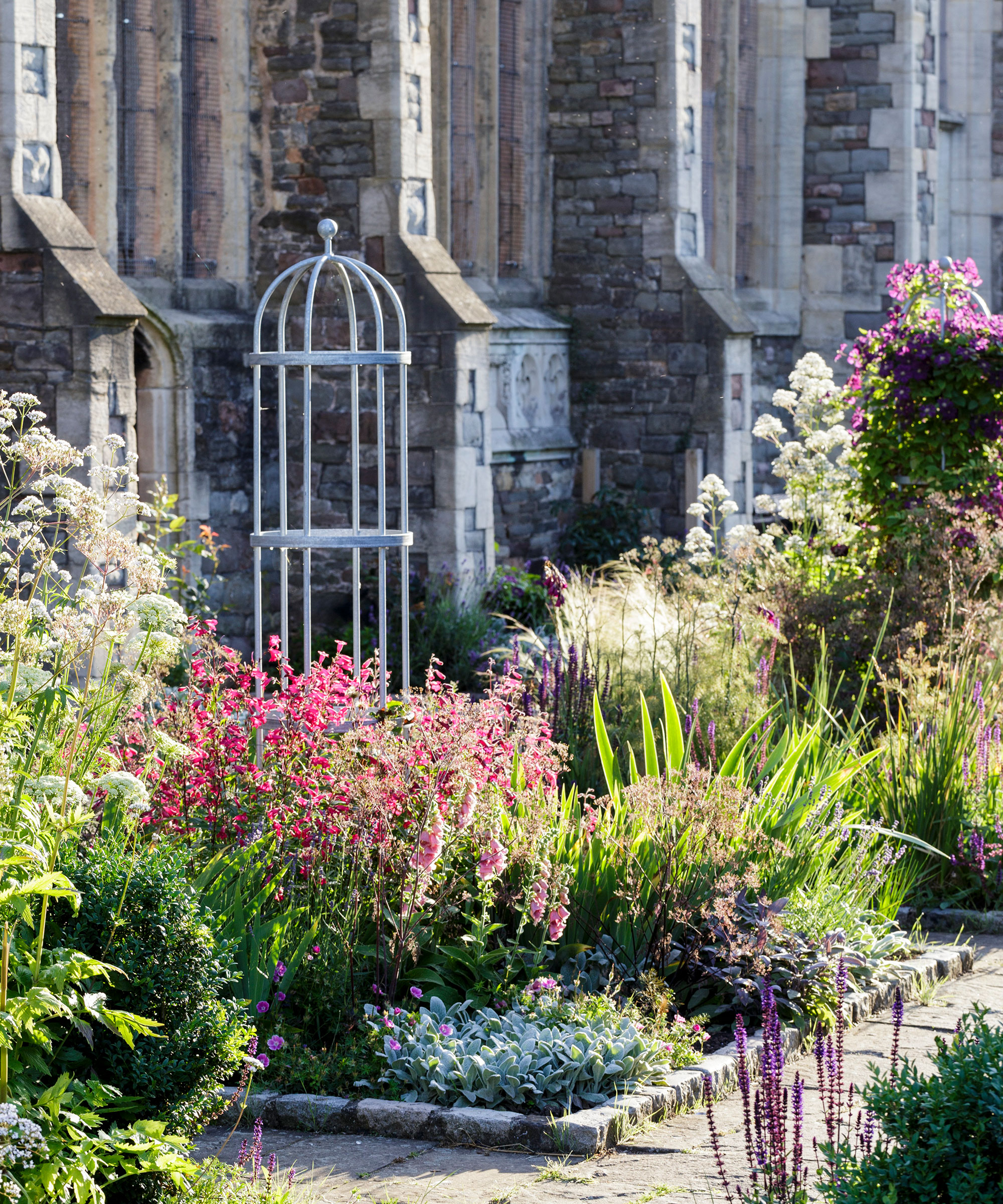
Unsurprisingly, garden edging with bricks is the most popular method. Not only is it sturdy and structural, it is almost one of the easiest edging ideas to maintain.
While exploring imaginative designs, it is imperative that you don’t forget the practicalities. Much-used paths and borders should have a level, durable surface that is easy to keep clean, weed-free and will take a bashing from the wheelbarrow.
What can I use for garden edging?
There are so many materials that you can use for garden edging.
Before deciding what material and style of garden border to go for, think about the overall outdoor look you wish to achieve. It needs to reflect the existing style, so consider what would work with your planting themes, color choices, garden furniture and general ambience.
For example, off-cut logs and rustic willow are nice options for traditional country gardens – and work particularly well as lawn edging and path edging. Alternatively, try combining concrete slabs and railway sleepers for a cool, industrial feel.
What is the cheapest garden edging?
The cheapest garden edging materials are gravel, wood chips and logs. You can even create a rustic – yet pretty – garden border with any existing plant pots.
What is the best garden edging?
The best type of garden edging wholly depends on your garden style, budget and know-how. It is generally accepted that bricks, concrete and timber are favored amongst the majority of garden landscape designers. If you are after something less neat, wood chips and gravel can also work just as well.
Sign up to the Homes & Gardens newsletter
Design expertise in your inbox – from inspiring decorating ideas and beautiful celebrity homes to practical gardening advice and shopping round-ups.

Jennifer is the Digital Editor at Homes & Gardens. Having worked in the interiors industry for several years in both the US and UK, spanning many publications, she now hones her digital prowess on the 'best interiors website' in the world. Multi-skilled, Jennifer has worked in PR and marketing and occasionally dabbles in the social media, commercial, and the e-commerce space. Over the years, she has written about every area of the home, from compiling houses designed by some of the best interior designers in the world to sourcing celebrity homes, reviewing appliances, and even writing a few news stories or two.
-
 Grace Kelly's former living room set the blueprint for quiet luxury – you can explore her NYC penthouse (listed for $3.25 million)
Grace Kelly's former living room set the blueprint for quiet luxury – you can explore her NYC penthouse (listed for $3.25 million)A unit in the storied Manhattan House, where Grace Kelly, Benny Goodman, and Shirley Jackson have lived, has hit the market – it's a masterclass in neutrals
By Hannah Ziegler Published
-
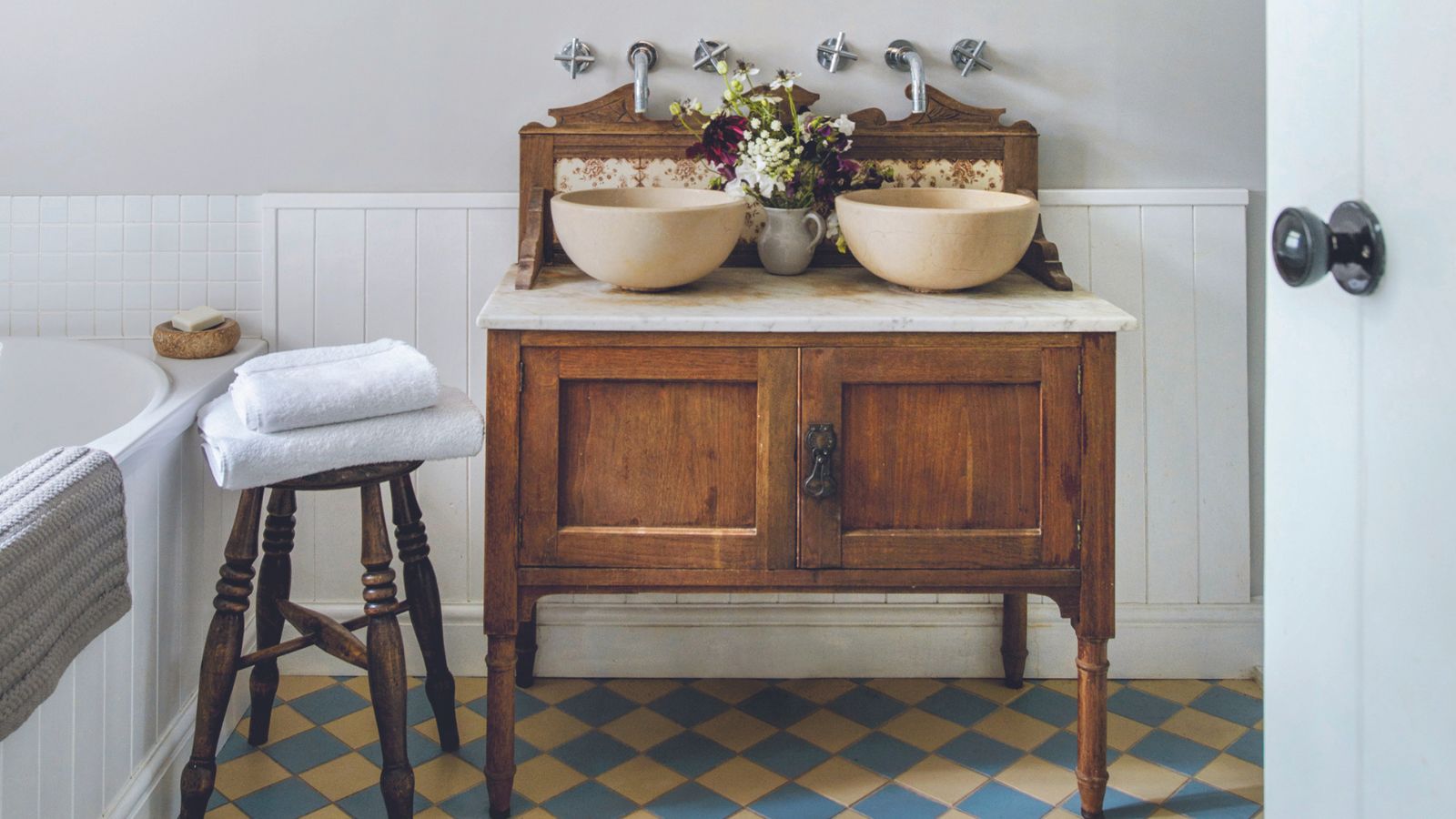 I'm 5ft2 and this telescopic scrubber safely and easily banished mold and grime in even the hardest-to-reach areas of my bathroom in less than 15 minutes
I'm 5ft2 and this telescopic scrubber safely and easily banished mold and grime in even the hardest-to-reach areas of my bathroom in less than 15 minutesMy bathroom has never looked better thanks to this handy $16 two-in-one tool from Joseph Joseph
By Ottilie Blackhall Published